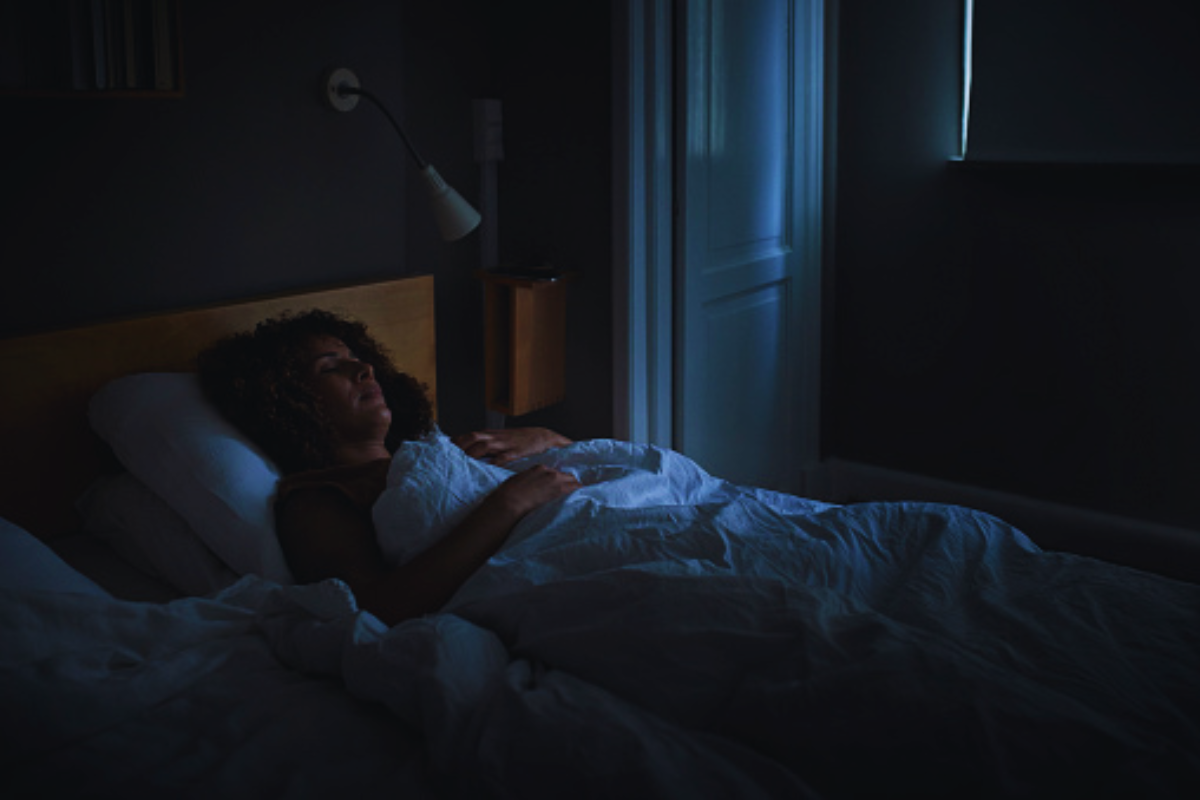In a world where self-care is not just a word, one part of the welfare that is on demand is sleep. Like in the U.S., where few people with another sleep method were excluded from the society, the time of change promptly occurred there. Now, a whole new world in the U.S. which is free to determine the time they want to sleep is coming up.
Although the eight-hour sleep duration is a long-advertised “norm” suggested to humans for good health than any other, 2025 has witnessed a wave of breakthroughs in the way Americans are tackling their night rhythms. The ongoing tech revolution and changes in cultural interaction that are being witnessed in the workplace are leading to the reassessment of the traditional “eight-hour rule.”
A Customized Sleep Revolution
The latest studies indicate that more and more people in the USA are taking their time in starting their sleeping habits, breaking away from the fixed sleep schedules of their ancestors. This urban phenomenon is most notable in metropolitan areas such as New York, Los Angeles, Chicago where business and lifestyle make people sleep none to very little hours.
Now physicians are advocating an individualized approach to good sleep which is that that takes into account the unique personal conditions of every individual. Dr. Michael Anderson, a sleep expert at the American Sleep Institute, says: “Sleep is no longer a one-size-fits-all concept. It’s now dawned on people that everyone’s body is unique, requiring different sleep periods. Data such as the person’s age, tension levels, and even genetic predisposition can be used to calculate the amount of sleep an individual needs.”
The Sleep Revolution’s Explanation
This sleep scheduling transformation is supported by fresh sleep studies, which state that the old-fashioned sleep recommendations may not be right for everybody. The scientific explanation is that the length of sleep that is a traditional recommendation does not work for all. For instance, younger adults or those who are vigorously active may gain success through sleep, which is less but more intense in terms of the sleep cycles, while the seniors would be more likely to achieve longer, better sleep periods.
“It is very clear that sleep is not just about its quantity but also about the quality,” points out Dr. Andrea Collins, a behavioral psychologist from San Francisco. “In certain situations, they could end up sleeping less than the ‘required’ amount and yet feel fresher, more alert and mentally vigorous than they were prior to trying to force themselves to get the arbitrary amount of sleep.”
Technology’s Establishment of the Sleep Transition
Technological development has been a great contributor to the creation of a new era of sleep health. Wearable sleep trackers and smart mattresses have become widely used devices and are revolutionizing sleep in many ways. These devices collect vital sleep information such as sleeping patterns, heart rate, and the effects of light and room temperature while providing these data in real-time to the resources available.
The first of the sleep products that displays the transfer of more power to the consumer is the smart sleep type of mattress. This specialty in the industry confers the mattress with the authority to change its setting throughout the night, enabling the user to adjust his body to different requirements of sleep. It is quite clear that such exquisite sleeping devices are not only meant for the tech-savvy, but also that regular consumers have embraced them, thereby taking the march and leading the way in their quest to get perfect sleep.”
Flexibility at the Workplace Is a Big Deal
The most obvious element that has driven the move to take naps during the day is the availability of remote work and the emergence of a more flexible culture at work. Due to the COVID-19 pandemic, many Americans have adjusted to working by focusing on flexibility, thus increasing the number of flexible hours, hybrid workspaces, and the growing trend towards caring for mental health.
As a result, this flexibility has been a key aspect of people’s lives, which has helped them better organize their sleep instead of being in the strict 9-5 slot. Besides the increased feeling of self-sufficiency, remote workers are offered greater opportunities to test different sleep timings. Moreover, they have found that they could easily change their sleep habits to match their natural circadian rhythms without any hindering as a result of the experiments they have conducted until they found the right match.
“So many more Americans are choosing the time when they are most productive to work, which can be early in the morning or late in the day,” shares Lisa Matthews, who serves as an HR specialist for a leading tech establishment. “Though it’s tough sometimes, finding a routine that best fits your schedule is a big part of it, and that may also include finding the most suitable time to sleep.”
Sleep Pods and the Nap Culture Phenomenon
The revitalization of this dormant custom has particularly been boosted in companies on the back of innovative designs. The growing trend of corporate health practitioners incorporating sleep pods and designated nap areas among their wellness programs has charged employees with the opportunity for daytime regeneration. This transformation in attitude and practice toward the recognition and appreciation of the influence of adequate rest in productivity and mental well-being is apparent from the support by various companies with similar initiatives.
“This whole process is about us taking back our rest,” said Sarah Lee, who is a wellness coordinator for a major firm located in New York City. “People are discovering that a short nap during the day does not only refresh them, but it also helps them to be much more efficient at work and raises their general well-being.”
Future of Sleep: A Latest Method for a Healthy Sleep
The future is going to be different for the Americans how they approach sleep, and it will continue to change. Professionals are of the opinion that sleep personalization is a modus operandi that will be coming very soon, and it will have solutions to suit individuals, on the basis of their lifestyle, health, and even their genes.
“I’m quite sure that we’re just about entering the new era of a kind of sleep making way for a transformation,” Dr. Anderson wraps up. “With the more we find out about the probabilities and variations of sleep, we can more and more make it as a health and productivity booster. Sleep in the days to come is outwardly not a general condition but an individually suited one.”






